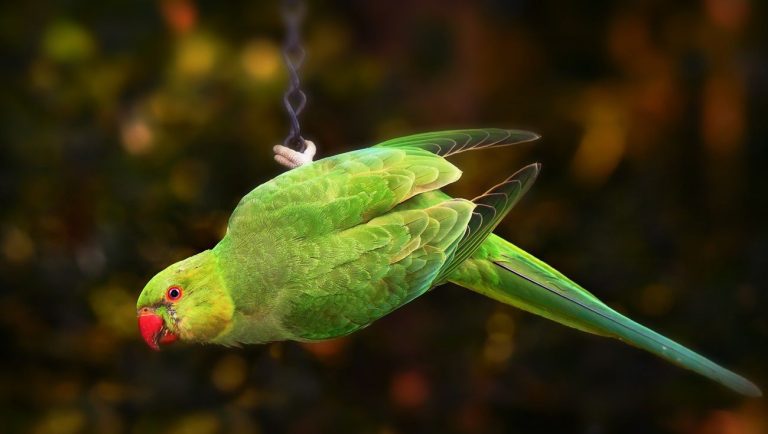Decoding the Parrot Personality: A Comprehensive Guide to Their Behavior and Temperament
Parrots, with their intelligence, vibrant personalities, and remarkable ability to mimic sounds, have captivated humans for centuries. These fascinating creatures, inherently social animals, thrive on interaction and display a complex range of behaviors. Understanding their unique personalities is key to building a strong bond and ensuring their well-being.
The Quirky Character of Parrots: Temperament and Cunning
While often perceived as simply adorable, parrots possess a surprising depth of character. Contrary to the image of a perpetually cheerful bird, parrots exhibit distinct personalities that can include traits like selfishness, possessiveness, and even a tendency to hold grudges. These quirks, however, are precisely what make them so endearing and unique compared to other pets.
Parrot Temperament: A Spectrum of Emotions: Yes, parrots definitely have temperaments! Observations of captive parrots reveal a common thread of complex emotions. They can be self-centered, jealous, and even seemingly vengeful. Accepting and even appreciating these “flaws” unlocks the rewards of parrot ownership.
Understanding Parrot Behavior: The “Sweet” Side of Spite: If you can embrace the sometimes challenging aspects of parrot personalities, you’ll discover a wealth of positive attributes. Parrots often show remarkable understanding, affection, and playfulness. Their ability to mimic human speech and inflections adds another layer to their captivating charm.
Clever Canines and Crafty Cockatoos: Manipulative Affection: A parrot’s seemingly mischievous behavior often stems from its intelligence and emotional complexity. When feeling neglected, a parrot will employ various tactics to regain its owner’s attention—a testament to its deep affection and desire for connection. We could call it cunning affection!
Real-World Example: The Art of Manipulation: I’ve heard numerous anecdotes from parrot owners detailing clever manipulation tactics. For instance, a parrot might deliberately pull its cage liner onto the floor to attract attention, then shower its owner with affection once the mess is cleaned up. This behavior is not malice, but rather a sophisticated way of communicating its needs.
Parrot Personalities: External Manifestations of Internal Worlds
Parrots’ unique personalities are reflected in their outward behavior and interactions. Understanding these expressions is crucial for responsible parrot ownership and creating a harmonious living environment.
Reserved but Responsive: The Parrot’s Delicate Nature: While parrots can appear reserved, their willingness to comply with requests, particularly when rewarded with praise or attention, demonstrates their capacity for learning and their desire to please their owners.
Social Butterflies: Parrots and Their Popularity: Many parrots are highly perceptive and possess a natural ability to mimic, making them incredibly popular. This inherent sociability leads to a welcoming attitude towards others.
Adaptability and Malleability: The Shape-Shifting Parrot: Due to their sociability and observational skills, parrots are easily influenced. Their inherent adaptability makes them highly trainable, allowing owners to shape their behavior through consistent, positive reinforcement.
The Flock Mentality: Parrots’ Social Needs: Most parrot species are inherently social and thrive in group settings, preferring companionship to solitary confinement. Their inherent need for interaction and stimulation makes them unsuitable for neglectful environments.
Intelligent and Observant: Parrots’ Sharp Minds: Parrots possess impressive intelligence and are acutely aware of their owner’s emotions and intentions. This understanding allows them to respond appropriately, often exhibiting remarkable sensitivity and emotional intelligence.
Peacemakers at Heart: Avoiding Conflict: Parrots, being social creatures, generally prefer harmonious environments and will display signs of distress when exposed to conflict. Chronic stress can have detrimental effects on their health and well-being.
Learning Machines: Parrots’ Incredible Capacity for Learning: Their innate learning capacity makes training relatively straightforward. Once a bond is established, parrots demonstrate impressive eagerness to learn and respond positively to instruction.
Gentle Giants: Parrots’ Temperament: Generally, parrots are gentle and amicable, rarely exhibiting uncontrolled outbursts of anger. Their emotional regulation skills suggest a surprisingly high EQ.
The Ever-Optimistic Parrot: Parrots often appear remarkably optimistic, seemingly unconcerned by potential dangers or worries. This carefree attitude contributes to their endearing nature.
Conclusion: Embracing the Parrot Personality
Understanding the complexities of parrot personalities is paramount to responsible ownership. By appreciating their unique quirks and recognizing their inherent intelligence and social needs, we can build strong, rewarding relationships with these remarkable creatures. Through patience, understanding, and positive reinforcement, we can unlock the full potential of our feathered companions, creating a fulfilling and enriching experience for both ourselves and our parrots.
Remember to always consult with avian veterinarians and experienced parrot owners for specific advice on training, care, and addressing behavioral issues. The journey of parrot ownership is a rewarding one, filled with laughter, learning, and the unwavering affection of a truly unique companion.

